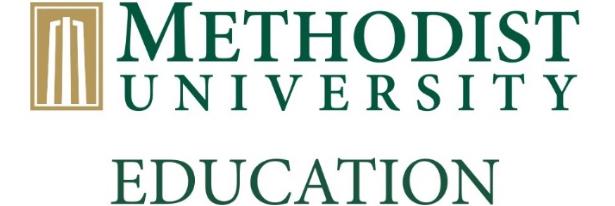
Methodist University
About
Methodist University is committed to preparing dynamic, engaging teachers who are prepared to teach all children. Our graduates go on to successful careers in their chosen field and regularly receive awards for their teaching ability.

Program Info
Upcoming Deadlines
Deadlines
Program Start
Get Deadline Reminders
Application Fee & Annual Tuition
Learn how to get$100 Back
and apply for a$1000 Scholarship
$12,400
In State Tuition
$12,400
Out of State Tuition
$50
Application Fee
Ways to Lower Your Costs
Students at Methodist University have reduced the cost of their program using these methods. Check with Methodist University to see if you can, too!
$2,000
Wright Scholars Program
$2,500-3,500
Valedictorian/Salutatorian Scholarship
$16,000-20,000
Presidential Scholarship
$9,500 -16,000
Merit Scholarships
For more information visit:Financial Aid Office
Licensure Areas
English Language Arts 9-12
Language Arts 6-9
Mathematics 6-12
Mathematics 9-12
Music K-12
Physical Education / Health K-12
Science 6-9
Science 9-12
Social Studies 6-9
Social Studies 9-12
Special Education / General K-12
Visual Arts K-12
Stats
Male
Female
46%
54%

